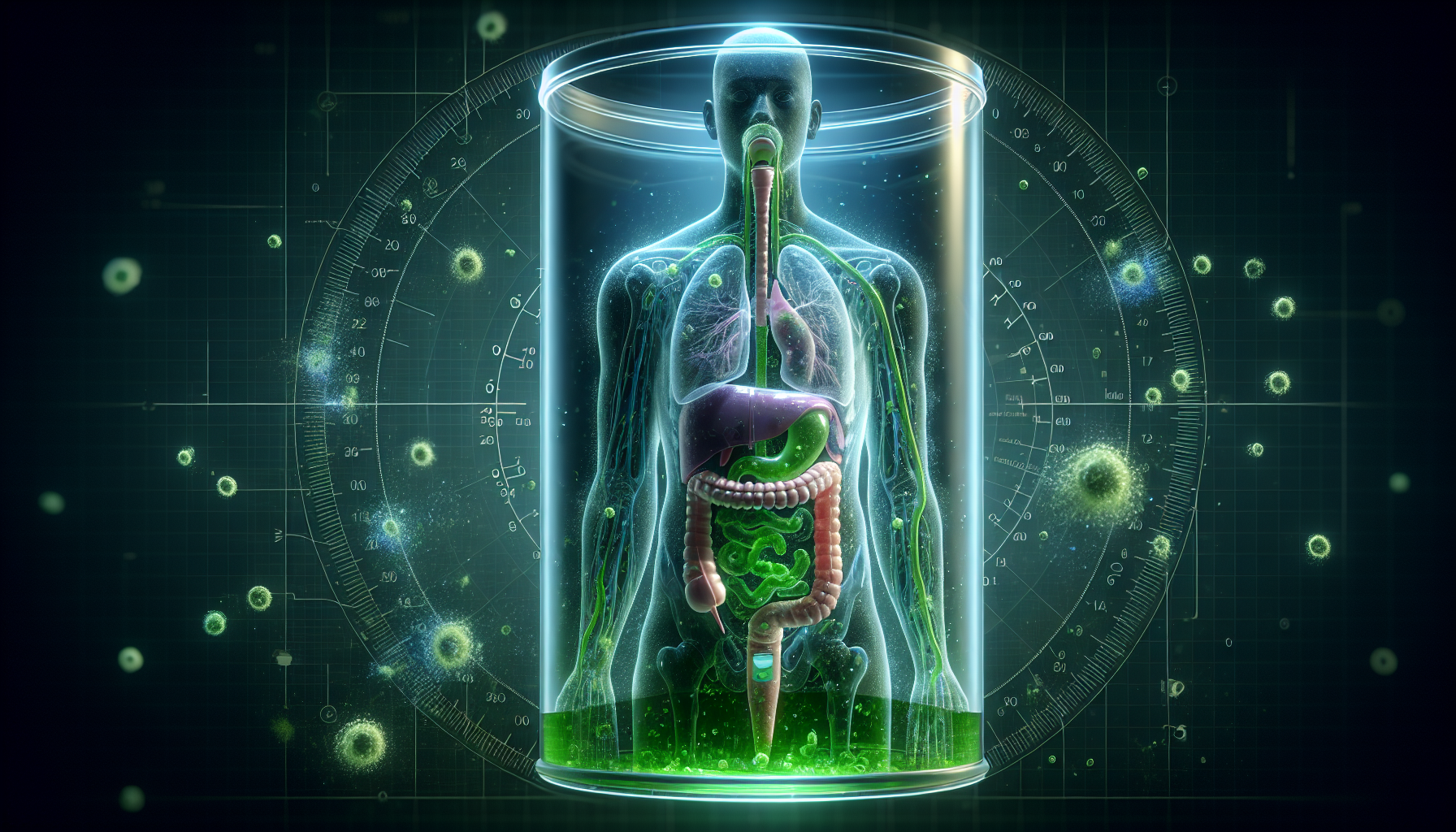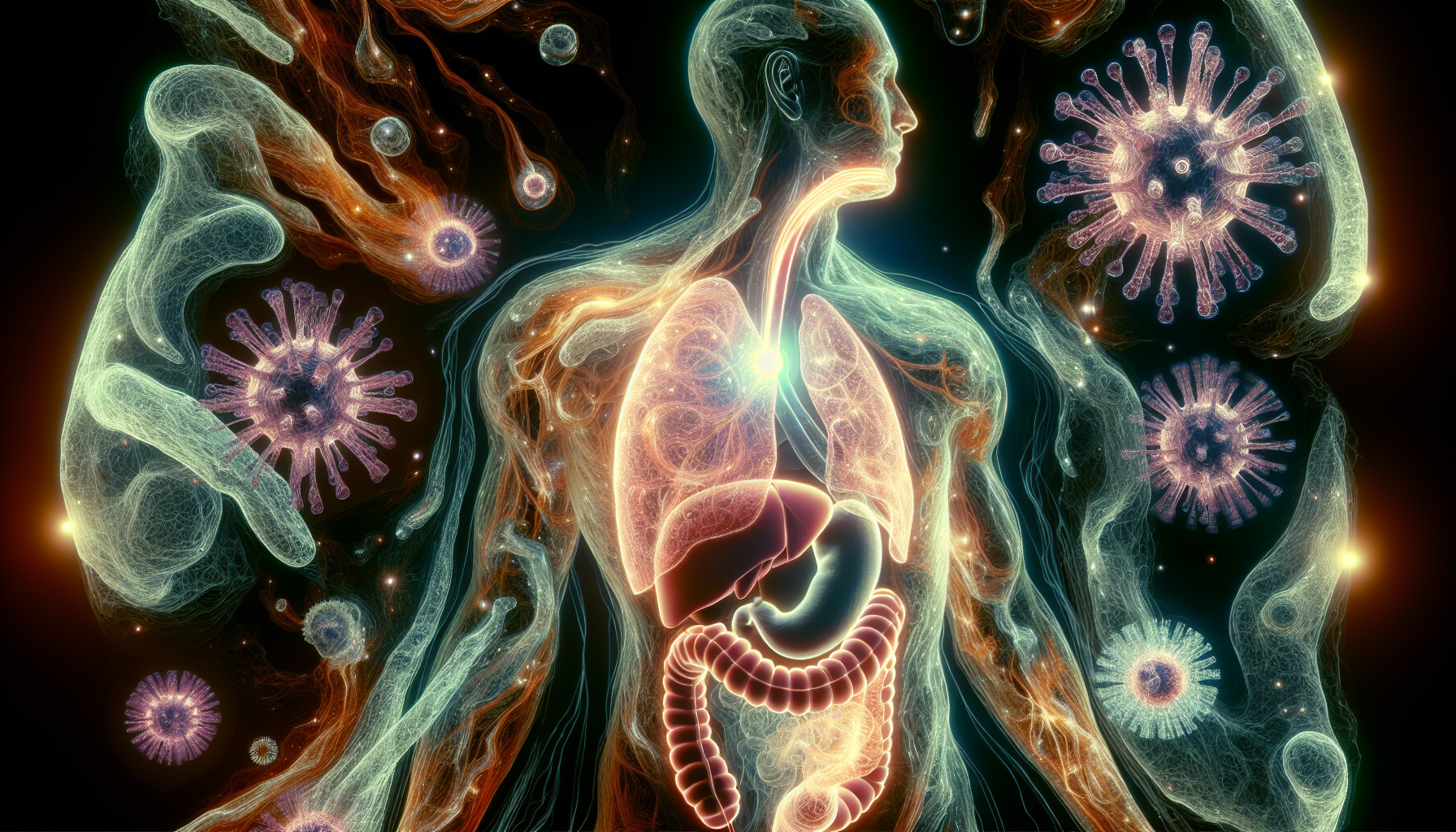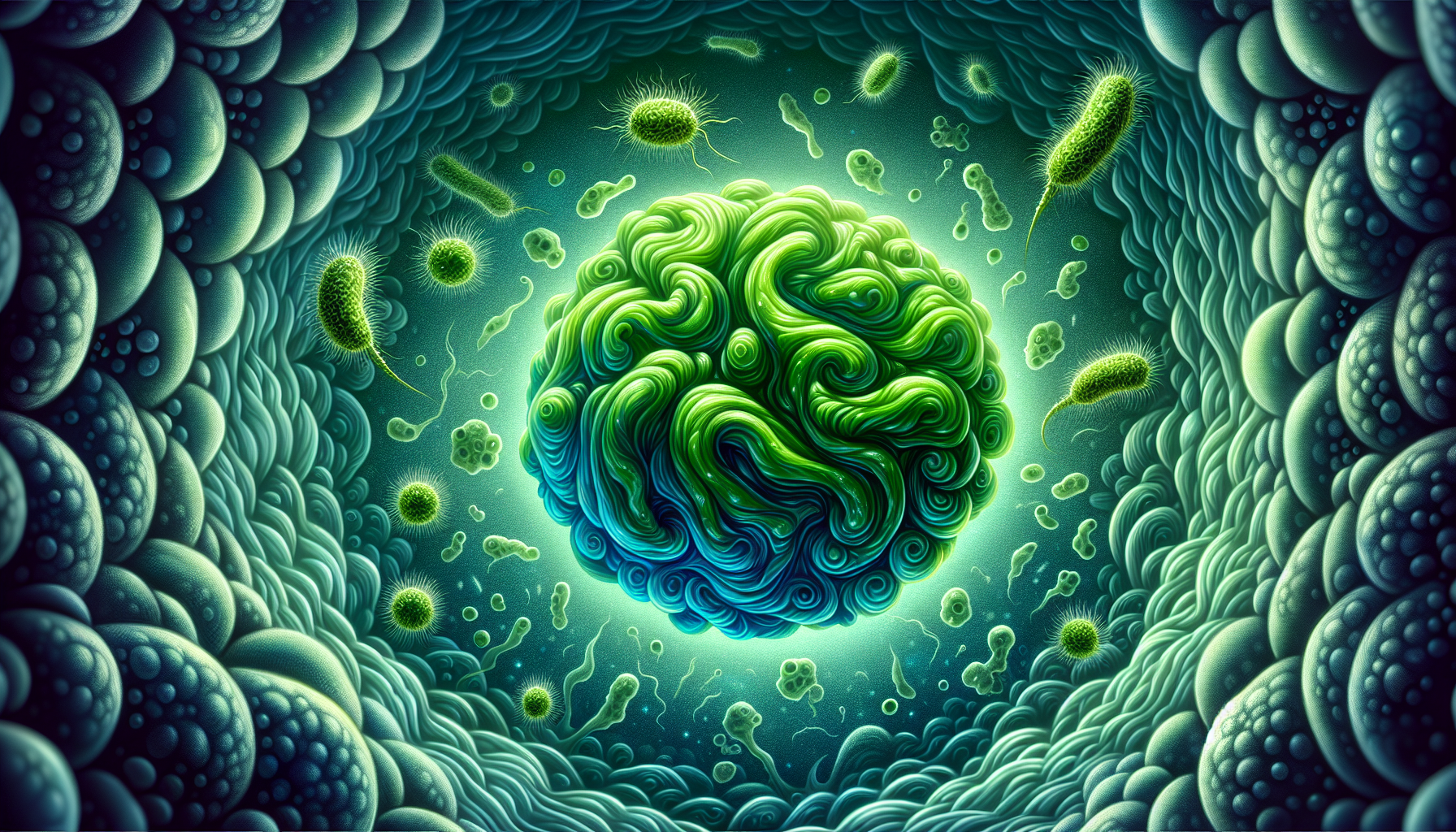Let's introduce ourselves to one of the most underrated, overworked, and underappreciated systems functioning in our bodies.
Not too glamorous, a bit slimy, and maybe even a little gross to some - but without this soldier, our bodies would fall victim to all kinds of nasty invaders.
Imagine producing a liter of an essential substance every day - something so intrinsic to your well-being, it's absolutely vital for day-to-day function.
Have you guessed it yet?
If you considered 'Mucus', you'd be spot-on!
An astounding liter of mucus is produced by the human body daily.
This works around the clock, originating from different parts within us - from our nasal passages to our intestines, it is an unsung hero waging an unending battle to keep us safe.
Yes, you have read it correctly, your body does an incredible job every single day producing a matter close to the quantities of a large bottle of soda.
This might seem excessive, but there are compelling reasons why our bodies go into this gelatinous overdrive mode.
Intricately interwoven within us, mucus acts as a robust protective blanket. It shields delicate tissues from foreign particles that can cause harm.
It also keeps our nasal passages supple and moist, securing us from the dread of dry noses, especially during those pesky cold winter months.
But the mucus's role doesn't stop there. It's also your body's frontline soldier, trapping harmful microorganisms and thwarting their invasion into our system.
With so much to discuss about this gooey protagonist, it's shocking how little most people know about it.
Stick around as we delve deeper into the delightful (yes, surprisingly delightful!) world of mucus
how it works
why our bodies produce it in such astonishing quantities
the hidden health benefits lying at the heart of this gooey concoction
How do these seemingly mundane activities within us play such vital roles in our bodies?
The Amazing Role of Mucus in Your Body
Most of us appreciate the inner workings of our bodies on a basic level, but we tend not to dwell too much upon the, well, slimier aspects.
And mucus, admittedly, is not the most glamorous subject.
Yet, the fact remains, mucus serves crucial functions in our metabolism and general well-being.
Before you grimace, try to picture this:
Our bodies, especially the moist tissues lining the inside, like lungs, stomach, sinuses, and intestines, act as playgrounds for potentially harmful pathogens.
Now, imagine a slimy, sticky substance arriving like a superhero, capturing and neutralizing these unwanted invaders.
This heroic, albeit gooey, character is none other than mucus.
But what makes mucus so special?
The answer is simple: its composition.
Mucus primarily consists of water, antimicrobial enzymes, antibodies, salts, and proteins.
The proteins make mucus sticky, enabling it to trap foreign particles effectively, while the antimicrobial enzymes and antibodies kill bacteria and viruses, ensuring a line of defense across the body.
It, quite literally, forms a barrier between your fragile inner world and the external world, packed with potential threats.
Take, for example, the role mucus plays in your respiratory system.
The cells lining your nose and respiratory tract produce mucus to act as a protective blanket.
They trap dust particles, bacteria, and allergens and prevent them from reaching the lungs.
Cilia, tiny hair-like structures on the surface of these cells, keep the layer of mucus moving towards the throat.
From there, it's either coughed out or swallowed, ensuring the potential pathogens are removed.
Meanwhile, in the stomach, mucus forms a shield against the powerful acids that break down our food.
Without this layer, the acid could easily damage the stomach lining and could lead to painful ulcers.
In this way, mucus not only acts as a barrier but also lubricates our digestive system, making the process of nutrition absorption smooth.
While mucus isn't exactly the protagonist of a glamorous action-packed tale, its consistency and quantity tell an important story about your health.
Your doctor can often tell if you're under the weather by taking a quick look at your nose-dwelling substance.
A change in color, from clear to green or brown, for instance, typically indicates an infection. If the mucus becomes thicker, you might be dehydrated.
The Vital Roles of Mucus in Maintaining Health
When conjuring thoughts of mucus, most people might recoil at the prospect.
But you should know that mucus plays a more intricate role in human health than you may realize.
Right from birth, we begin to produce mucus to protect ourselves from the multitude of unseen threats lurking in our environment.
Mucus is primarily known for its role in trapping and flushing out foreign bodies like dust, bacteria, and viruses from our respiratory system.
Ever wonder why you often have a runny nose during cold or flu?
This is your body's defense mechanism!
It produces more mucus to try and clear out the invading pathogen that's making you ill.
Strangely enough, this partly disgusting response is incredibly beneficial for our health.
Mucus also lines the entire gastrointestinal (GI) tract, providing a protective layer that prevents the stomach's harsh acidic environment from degrading the walls of the stomach and intestines.
This protective role is key in preventing conditions like gastritis and peptic ulcers.
This gooey substance is enriched with antibodies and enzymes like lysozymes that battle invading microorganisms, providing an additional layer of protection.
It's like Millie the mucosal mastiff, relentlessly guarding the gates of your body from microscopic marauders!

Beyond the fortress-defender role, mucus also plays the role of a traffic controller.
It guides food down through the esophagus during swallowing and helps to maintain the body's overall moisture balance.
Our bodies would seize up and dry out without this constant moist environment, much like a well-oiled machine needing lubrication to operate smoothly.
Interestingly, while we've been focusing on the mucus churned out by our noses, our bodies also produce mucus in the eyes, reproductive tract, and even in the mouth.
For instance, when you chew your food, your salivary glands release a mucus-rich liquid (saliva) that helps moisten the food, making it easier to swallow.
The function of mucus extends to the reproductive system as well.
Here mucus acts as a transport medium for sperm during sexual intercourse, which increases the chances of successful impregnation.
How's that for a practical application?
Perhaps most astonishingly, recent studies suggest that our mucus might play a role in regulating our microbiome, the trillions of symbiotic bacteria living within us.
Without mucus, these microbes could go rogue, breaching the boundaries and wreaking havoc within our bodies.
After all this, doesn't it feel like we should have a newfound respect for this protective, goopy substance?
So the next time you blow your nose, remember, it's not just goo; it's a miniature, well-trained army guarding you.
The Pivotal Role of Mucus in Our Body

Mucus is primarily produced by goblet cells and submucosal glands, which are present in our noses, throats, lungs, and gastrointestinal tract.
The mucus produced in these areas works as a protective blanket, keeping harmful particles like bacteria and dust from getting into our cells.
It's like your body's own personal security system, always at the ready to defend against invaders.
Imagine you've been working in your garden and dust particles have entered your nose and throat.
These particles can potentially harm your cells. But thanks to the mucus layer that lines your airways, they are caught and prevented from causing any havoc.
The cilia (tiny hair-like structures) in your respiratory tract move in a wave-like motion to push this mucus (now filled with trapped particles) up and out of your lungs, essentially helping you clear your throat.
The role mucus plays extends beyond your nose and throat.
Mucus also helps protect and lubricate our digestive and urinary systems.
Picture eating a dry, crusty piece of bread. It's not the most pleasant sensation, is it? And that is where mucus steps in.
It keeps our throats and digestive tracts moist, helping us swallow food comfortably.
Millions of goblet cells in our stomach lining produce mucus which also acts as a protective layer against the stomach's own corrosive acid, preventing ulcers.
By now, the image of our body as a sort of mucus factory might be becoming clearer in your mind.
But it's not just the mucus that our body is producing, it's also managing and recycling it.
Every time you swallow, whether you're eating, drinking, or just swallowing saliva, you're also swallowing mucus.
Yes, it might be a bit gross to think about, but it's an ingenious recycling process.
This swallowed mucus is broken down in our stomachs and reabsorbed into our bodies, contributing to the production of more mucus.
Does the idea of gulping down your own mucus make your stomach churn?
You may not have a choice in the matter though, as the body knows best when it comes to survival and homeostasis.
The abundance of mucus within us plays a crucial role in ensuring vital systems within our bodies function seamlessly.

